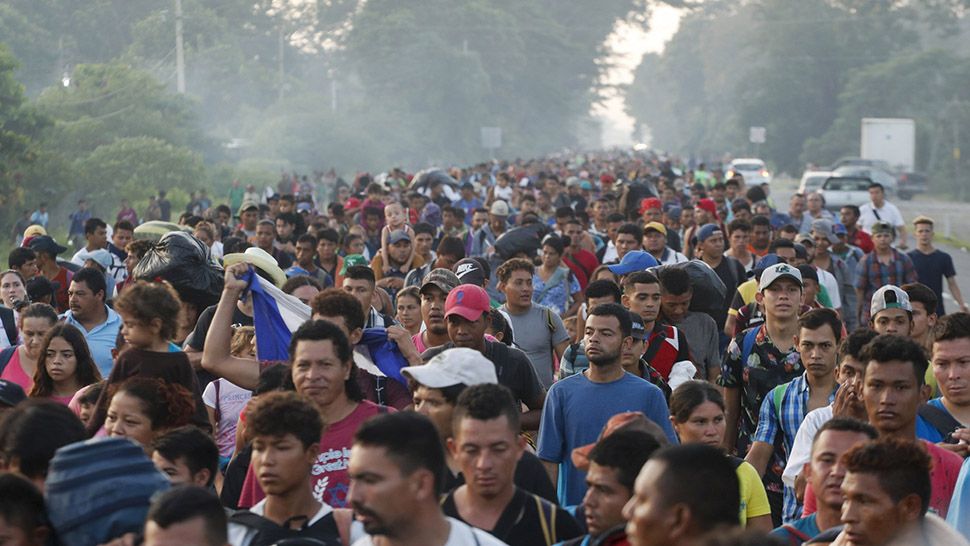WASHINGTON —The Trump Administration is moving ahead with one of its most aggressive steps to restrict legal immigration, issuing a new rule that could make it tougher for immigrants to receive green cards if they need public assistance.
- New Trump policy could deny green cards to those who need welfare
- New rule will only apply to those seeking green cards in the future
- LATEST NEWS: Washington DC Bureau stories | Bill Tracker
Federal law already requires those seeking green cards to prove they won’t be a burden, known as a public charge, but this new rule details a broader range of programs that could disqualify them from entering or staying in the country.
"If people are not able to be self-sufficient then this negative factor is going to bear very heavily against them in a decision about whether they'll be able to become a legal permanent resident,” said Ken Cuccinelli, Acting Director of U.S. Citizenship and Immigration Services, at rare White House briefing Monday.
For decades, the U.S. has restricted the immigration of individuals expected to become a public charge, those who rely on government benefits to survive. However, Randy Capps, the Director of Research with the Migration Policy Institute said the new policy, expected to go into effect in October, would have a much broader interpretation.
Immigrants who use public benefits like Medicaid, housing vouchers, or food stamps for more than 12 months over a 36-month period could now risk being categorized as too reliant on government services.
“It’s now any use, not primary dependence. They’ve also amplified this test of whether you’re likely to use these benefits in the future,” Capps explained in an interview with Spectrum News.
The new rule will only apply to those seeking green cards in the future, not to current green card holders. However, experts say the new policy could have consequences for those qualified to use the benefits.
“It would prevent people from wanting to use the public benefits. That could mean a fair number of people who don’t get insurance coverage through the Affordable Care Act or through Medicaid who wind up getting sicker and showing up at hospital emergency rooms,” Capps said.
Active U.S. military members, refugees, and asylum seekers are exempt from the new regulation. Capps believes ultimately it could significantly limit legal immigration in the future.
“People who are already here in the country, who are less well educated, have less English proficiency, don’t have a job that’s going to pay them a lot of money lined up. They could be excluded because they are likely to use benefits in the future.”
The National Immigration Law Center has already said it will file a court challenge against the change — and others are expected to follow. Although, experts say tell the new rule will likely survive, because the current immigration law is vague and broad in this area.
According to research from the Migration Policy Institute, 3 percent of noncitizens in Florida used a public benefit that, under the 1999 public charge standard, could harm a future green-card application.
Under the new 2019 public charge standard, that share rises from 3 percent to 32 percent.







